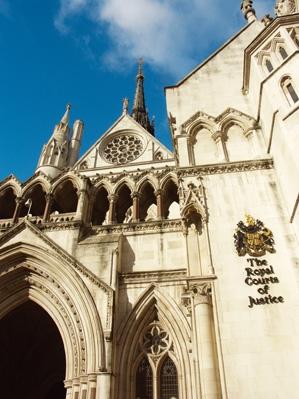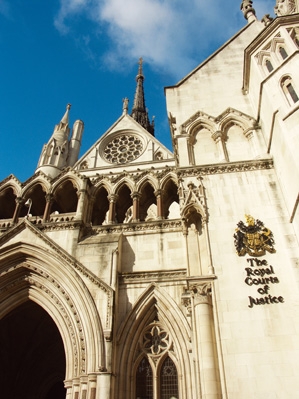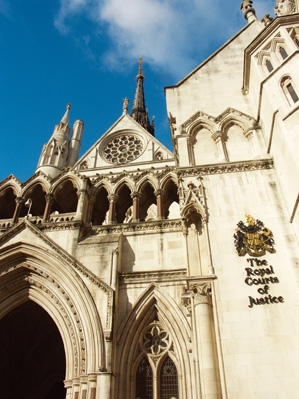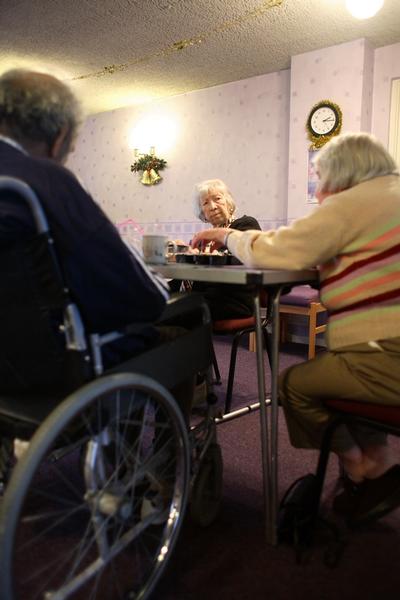Court rules housing associations are public bodies
Housing associations are public bodies and susceptible to claims under the Human Rights Act, London’s Court of Appeal confirmed today.
By a two-to-one majority, the Appeal Court judges backed a High Court decision a year ago which left the country’s 2,000-plus registered social landlords, which include a wide array of different types of bodies including the YMCA, potentially exposed to costly judicial review proceedings which could not be taken against them if they were non-public bodies.
Housing association London and Quadrant had argued that the decision should be overturned, claiming that the future ability of housing associations to finance their operations could be jeopardised by the High Court ruling of Justice Richards and Mrs Justice Swift, and that it could potentially pose a threat to the future delivery of affordable housing.
Lord Justice Elias and Lord Collins of Mapesbury - formerly Lord Justice Lawrence Collins when he heard the appeal in March - today ruled that the High Court judges were right.
In a dissenting judgement, Lord Justice Rix said that he would have allowed the social landlord’s appeal.
The case focused on London & Quadrant tenant, Susan Weaver, who was fighting against moves to evict her from her Hampton, south west London home.
Mrs Weaver challenged moves by London & Quadrant to evict her on the basis that that she had at least eight week’s arrears.
Her lawyers argued that the eviction moves breached her legitimate expectation that London & Quadrant would pursue all reasonable alternatives before launching possession proceedings. It was also argued that the eviction moves breached Mrs Weaver’s Human Rights to ‘family life.’
Her claim was dismissed by the court and Lord Justice Richards said he considered that London & Quadrant was justified in the action it had taken. Mrs Weaver had ‘history of substantial and repeated defaults’.
However, it was the court’s decision to allow the case to proceed in the first place that represented the major threat to housing associations.
London and Quadrant’s lawyers had argued that the status of housing associations such as London and Quadrant did not render them amenable to judicial review proceedings. The High Court rejected that argument.
Now the social landlord has failed in its appeal against that decision. It had sought a ruling from the Court of Appeal that it is not a public authority for the purposes of the Human Rights Act.
Its counsel, Andrew Arden QC, told the court in March: ‘London and Quadrant submits that it is not in any relevant respect a public authority under the 1998 Human Act. There is nothing inherently governmental about London and Quadrant’s function of providing, managing and seeking to terminate housing allocation.
‘There is simply nothing about the relevant activity of London and Quadrant which suggests that it is performing a function of a public nature, when serving notice with a view to termination of an assured tenancy. To the contrary the action of serving notice has been said to be a private act.’
He said that the decision had exposed 2,000 new bodies to the jurisdiction of the Divisional Courton decisions relating to housing allocation, rent increases and evictions, despite an earlier binding Court of Appeal ruling to the contrary
Lord Justice Elias ruled that there were a number of features which, when taken cumulatively, ‘bring the act of terminating a social tenancy within the purview of the Human Rights Act’.
He said that the Trust was acting in the public interest with ‘charitable objectives’.
He said that the Trust’s function of allocating and managing housing involved a significant reliance on public finance, in the form of a public subsidy that enables it to carry out its publicly desirable objectives. He also said that the Trust works in very close harmony with local government, helping local authorities to meet their statutory duties and objectives.
He added that the provision of subsidised housing to the poorer section of the community could properly be described as a governmental function, adding: ‘Almost by definition it is the antithesis of a private commercial activity.’
He concluded: ‘None of these factors taken in isolation would suffice to make the functions of the provision of housing public functions, but I am satisfied that, when considered cumulatively, they establish sufficient public flavour to bring the provision of social housing by this particular registered social landlord within that concept.’
He added that the act of terminating a tenancy was ‘so bound up with the provision of social housing’ that it must also constitute a public act, susceptible to judicial review.




